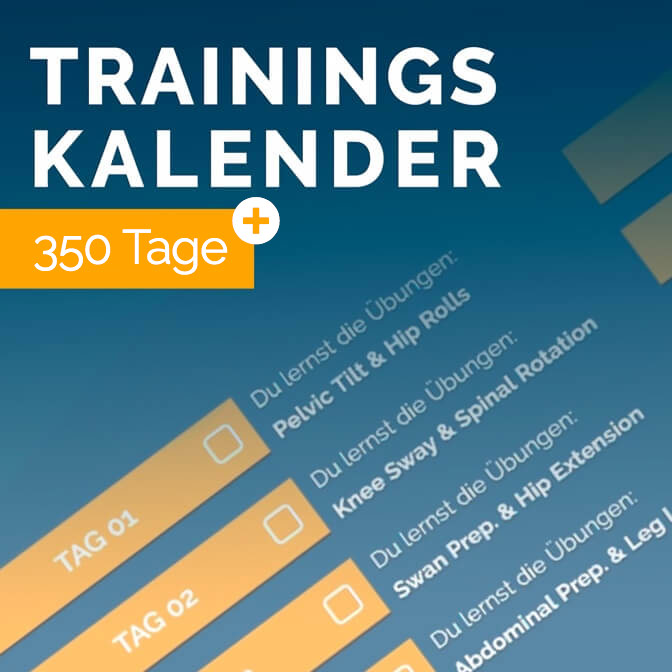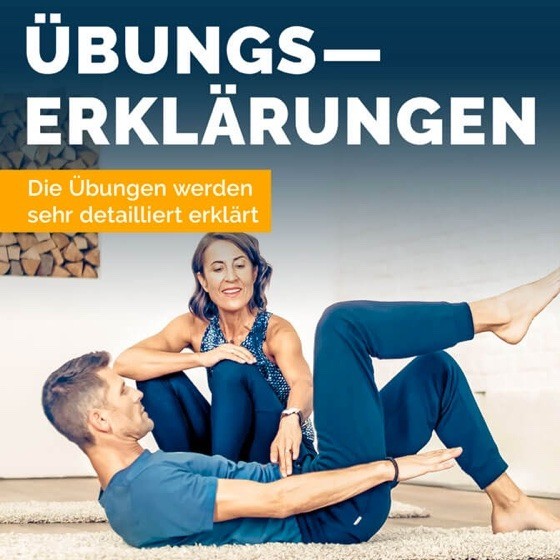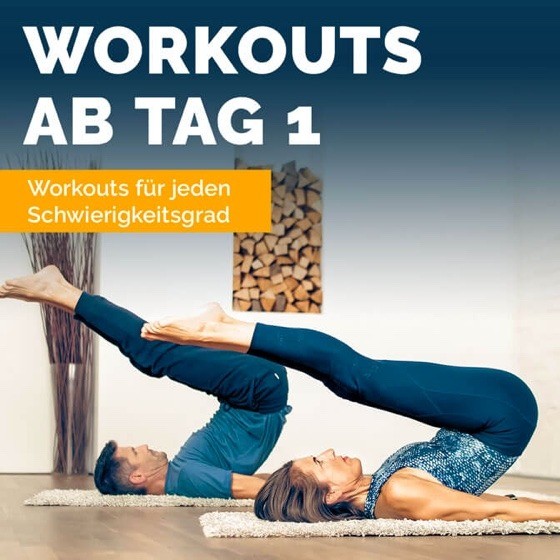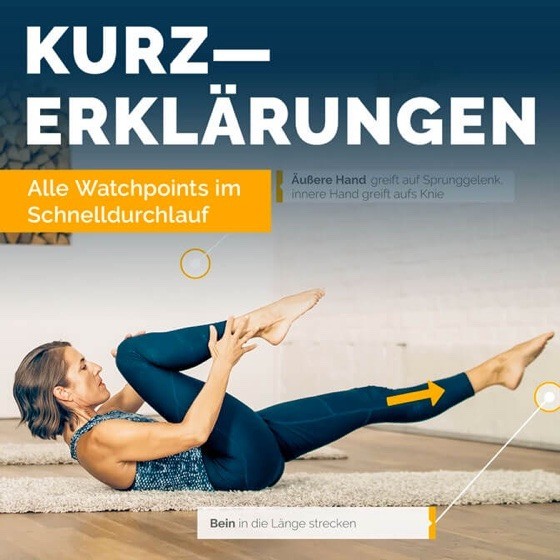
Pilates technique explained
What are the benefits of Pilates?
by Maria Felsner
We live in a time full of demands at work and in our private lives. The meritocracy challenges us and makes it increasingly difficult to enjoy life. These stresses often lead not only to physical problems, but also to mental ones. And this is where Pilates can help.
Pilates helps with stress relief
As we know from many years of experience Pilates an effective workout to reduce stress and to find inner peace and stability in order to draw and build up strength for new things. Pilates brings us back into balance both physically and mentally.
Of course, any kind of movement helps to reduce stress, but it is precisely the concentrated and conscious targeting of the body's center during Pilates training that leads to a deceleration in the mental sphere. We need our mental energy suddenly for the concentration on a certain body movement. This leads to the fact that we get out of our thought carousel.
Additionally helps the deep Pilates breathing also reduce stress and focus on the essentials.
It is known that a stressed person breathes superficially and frantically. If, on the other hand, one breathes deeply, consciously and slowly, the parasympathetic nervous system is activated. This is the area of the nervous system that is responsible for our relaxation.
If you practice Pilates for 15 minutes, you will be less stressed afterwards. Through concentration and breathing, it is essential that your body and mind are "calmed".

"The goal of Pilates is to have the whole body in mind so that the body becomes as supple as a cat's, not as muscular as a brewer's horse."
JOSEPH PILATES
Pilates improves posture
A very big advantage of Pilates training is that it always works on the uprightness. Many people suffer from poor posture due to the predominantly sedentary nature of work and everyday life. This has not only visual disadvantages, but in many cases leads to major problems in the area of the upper as well as the lower spine.
Pilates training leads to a functional straightening of the spine. In addition, the training leads to a great charisma through this uprightness. After just a few training sessions you will stand up straighter, sit more relaxed and feel more flexible.
Pilates promotes flexibility
We very often spend our daily lives sitting at a desk, driving, watching TV or on various digital devices. Due to this predominantly inactive daily routine, we become increasingly immobile and inflexible over time.
All muscles and joints want to be challenged and addressed in their range of motion. Therefore, a regular Pilates practice is very important. Pilates is an ingenious method to strengthen the body while making it more flexible and agile. This is because we focus on working with "long" muscles in every exercise.
Pilates improves the coordination of the body
In our everyday lives, we are almost always exposed to one-sided stresses. This begins with the fact that we are right-handed or left-handed. A "one-handed" person does many activities with his dominant half of the body.
Our body halves are therefore trained to different degrees. You can see this in different leg lengths, but also in the fact that the shoulder muscles are differently developed. Over time, this leads to problems in the area of the spine.
Furthermore, there are muscular imbalances due to one-sided movements in work, sports or everyday life.
In Pilates, we work against this by addressing both halves of the body equally and working specifically against these imbalances. In this way, we also create the prerequisite that our movements in everyday life become more coordinated.

"We are increasingly losing the balance between mental and physical health. Fitness exercises and sports without balance only work in the short term. Most of the time, they are even counterproductive in the medium term!"
JOSEPH PILATES
Pilates trains body awareness
Many people have forgotten how to perceive themselves in motion. They "don't feel themselves. They do not know how to target their muscles, which muscles really hurt and which are weakened.
With the Pilates training you learn to perceive your body again. You learn through the Pilates principlesThe main goal is to concentrate on breathing, to perform movements precisely and to train in a controlled manner.
Body awareness helps you to recognize possible weaknesses in movement sequences and subsequently prevent injuries. Many top athletes use the Pilates technique to be able to train more centered and injury-free.
Pilates relieves or prevents back pain
We would love to claim that Pilates can prevent a herniated disc. We don't. What we can prevent or alleviate with regular Pilates training, however, is chronic back pain as well as muscle tension caused by incorrect posture. The recurrence rate of chronically afflicted back patients who practice Pilates exercises regularly is much lower than with other forms of often uncontrolled training.
With the Training calendar of our online Pilates course you train in a controlled way. You start at the level that is right for you: Basic for beginners, Intermediate if you already have Pilates experience or Advanced and Masterclass if you are a Pilates professional.





